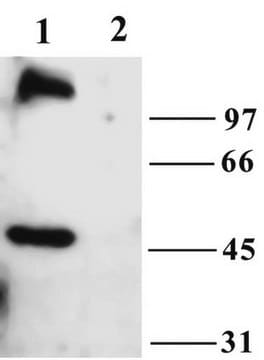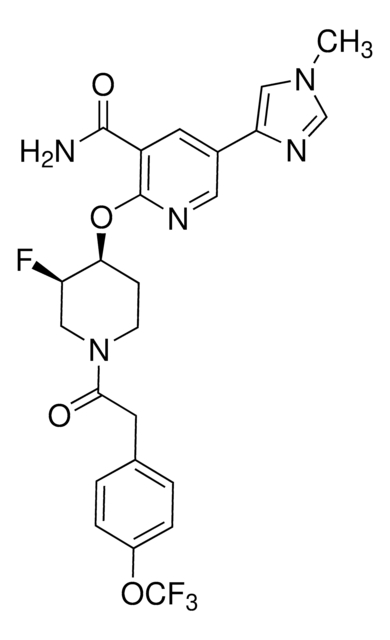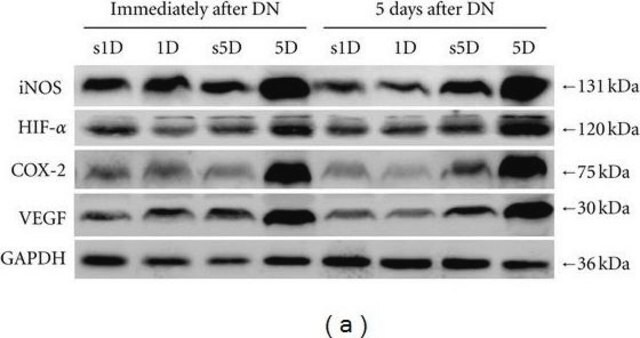MABN748
Anti-TrpC3, clone 10H6 Antibody
clone 10H6, from mouse
Synonym(s):
Short transient receptor potential channel 3, TrpC3, Transient receptor protein 3, TRP-3, hTrp-3, hTrp3
About This Item
Recommended Products
biological source
mouse
Quality Level
antibody form
purified immunoglobulin
antibody product type
primary antibodies
clone
10H6, monoclonal
species reactivity
mouse
species reactivity (predicted by homology)
human (based on 100% sequence homology)
technique(s)
western blot: suitable
isotype
IgG1
NCBI accession no.
UniProt accession no.
shipped in
wet ice
target post-translational modification
unmodified
Gene Information
human ... TRPC3(7222)
General description
Immunogen
Application
Neuroscience
Developmental Signaling
Western Blotting Analysis: A representative lot detected TrpC3 in rat liver and brain tissue lysates (Feng. S., et al. (2013). PNAS. 1-6).
Quality
Western Blotting Analysis: 0.5 µg/mL of this antibody detected TrpC3 in 10 µg of mouse brain tissue lysate.
Target description
Physical form
Storage and Stability
Other Notes
Disclaimer
Not finding the right product?
Try our Product Selector Tool.
Storage Class Code
12 - Non Combustible Liquids
WGK
WGK 1
Flash Point(F)
Not applicable
Flash Point(C)
Not applicable
Certificates of Analysis (COA)
Search for Certificates of Analysis (COA) by entering the products Lot/Batch Number. Lot and Batch Numbers can be found on a product’s label following the words ‘Lot’ or ‘Batch’.
Already Own This Product?
Find documentation for the products that you have recently purchased in the Document Library.
Our team of scientists has experience in all areas of research including Life Science, Material Science, Chemical Synthesis, Chromatography, Analytical and many others.
Contact Technical Service







